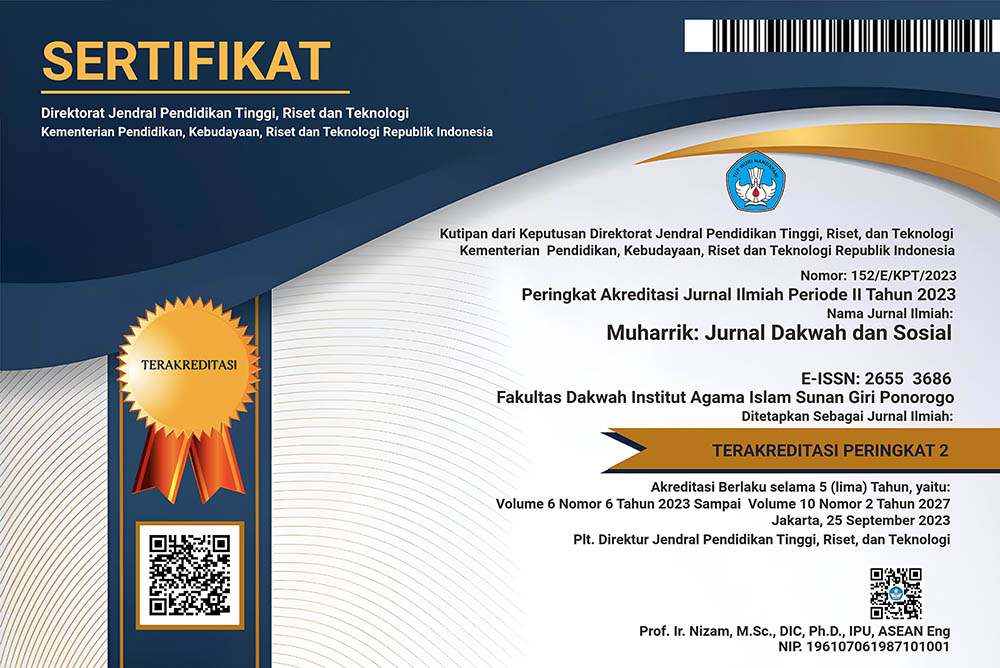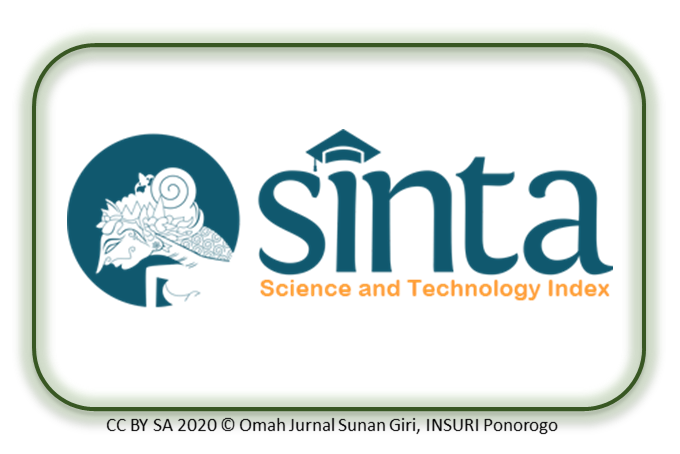Rekontekstualisasi Pemikiran Islam dalam Manhaj Ushul Fiqh Hassan Hanafi
Keywords:
Ushul fiqh, falsafah, hukum islam, turatsAbstract
Abstrak
Artikel ini mencoba membahas upaya pembaharuan Ushul Fiqh oleh Hasan Hanafi dalam karyanya ‘Min al-nahs ila al-waqi’. Pembaharuan yang ditawarkan Hanafi dalam karyanya ini adalah rekonstruksi Ushul Fiqh untuk merespon tantangan modernitas. Bagi Hanafi, Ushul fiqh adalah falsafah Hukum Islam. Ia menilai bahwa Ushul Fiqh hari-hari ini telah kehilangan fungsinya vitalnya sebagai falasfah bagi hukum Islam. Akibatnya, ummat Islam acapkali gagap ketika dihadapkan pada tantangan modernitas yang begitu kompleks. Kondisi semacam itu, menurut Hanafi disebabkan oleh “worldview” mainstream umat Islam terhadap turats; utamanya Ushul fiqh. Kebanyakan ummat Islam memandang Ushul Fiqh sebagai produk jadi, dan harus diterima apa adanya (taken for granted). Sehingga Ushul Fiqh menjadi produk yang terus dibaca secara berulang-ulang, tanpa adanya upaya pembacaan yang reproduktif. Padahal, pada awal kemunculanya, Ushul fiqh merupakan ‘perangkat teoritik’ dalam proses ijtihad. Sebagai piranti ijtihad, maka Ushul Fiqh senantiasa melibatkan : rasionalitas, teks dan konteks dalam memproduksi sebuah hukum (al-Istinbath al-ahkam). Maka dari itu, paper ini akan mencoba mengulas : Bagaimanakah ushul fiqh sebagai Falsafah hukum Islam dalam perspektif Hanafi? Bagaimana kontribusi gagasan Hanafi dalam konteks modern?
Kata Kunci : Ushul fiqh, Falsafah, Hukum Islam, Turats.
Abstract
This article tries to discuss the renewal of Ushul Fiqh by Hasan Hanafi in his work "Min al-nahs ila al-waqi". The renewal offered by Hanafi in his work is the reconstruction of Ushul Fiqh to respond to the challenges of modernity. For Hanafi, Ushul fiqh is the foundation of Islamic Law. He considered that Ushul Fiqh had lost its vital function as a function for Islamic law. As a result, the ummah of Islam often stutter when faced with the challenges of modernity. Such conditions, according to Hanafi are caused by the mainstream worldview of Muslims towards turats; mainly Ushul fiqh. Most Muslims see Ushul Fiqh as a finished product, and must be accepted (taken for granted). So, Usul Fiqh is a product that continues to be read repeatedly, without any reproductive reading. In fact, at the beginning of its emergence, Ushul fiqh was a 'theoretical device' in the process of ijtihad. As a tool of ijtihad, Ushul Fiqh always involves: rationality, text and context in producing a law (al-Istinbath al-ahkam). Therefore, this paper will try to review: What is the ushul fiqh as a philosophy of Islamic law in Hanafi's perspective? What is the contribution of Hanafi's ideas in the modern context?
Keywords : Ushul fiqh, Philosophy, Islamic Law, Turats.
References
Ghazali, al-, al-Mustasyfa min ‘Ilmi al-Ushul, Digital Library, al-Maktabah asy-Syāmilah: 2005.
Hanafi, Hassan, Min an-Nash ila al-Waqi’, Kairo: Markaz al-Kitab li an-Nasyr, 2005.
, al-Turats wa al-Tajdid terj. Yudian Wahyudi, Yogyakarta : Titian Ilahi press kerjasama dengan Pascasarjana press dan Bismillah press, 2001.
_______, Ad-Din wa ats-Tsaurat fi al-Mishr, Vol. VII, Kairo: al-Maktabat al- Madbuliy, I987.
Uways, Abdul Halim, Fiqh Statis dan Dinamis, Jakarta: Pustaka Hidayah, 1998.
Syatibi, al-, al-Muwafaqat fi Ushul al-Syari’ah, Beirut: Dar al-Kutub al-‘Ilmiyah, 2003.
Saenong, Ilham B, Hermeneutika Pembebasan: Metodologi Tafsir Al-Qur’an Menurut Hassan Hanafi, Bandung: Teraju, 2002.
Downloads
Published
Issue
Section
License
The author(s) retain/s the copyright and grant/s Muharrik: Jurnal Dakwah dan Sosial the first publication rights licensed under the Creative Commons Attribution-NonCommercial 4.0 International (CC BY-NC 4.0) , which allows others to access (search, read, download and quote), share (copy and redistribute the material in any media or format) and adapt (mix, modify and develop) works for legitimate non-commercial purposes, with recognition of the authorship of the work and its initial publication in this journal.













